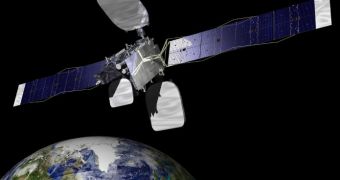According to officials at the Boeing Corporation, the organization has just been commissioned to construct a new satellite payload, for yet another of the four spacecrafts that Intelsat SA ordered.
The order was placed last year, and engineering team at Boeing, one of the most important space, aeronautics and defense contractors in the world, have been working on making them a reality ever since.
The announcement about the new contract was made today, August 24, by representatives at Boeing. They did not disclose the financial details of the agreement.
The contractor is to develop and install a second ultra-high frequency (UHF) payload on one of the four spacecrafts its tasked with building.
“Providing a second military hosted payload for Intelsat demonstrates our ability to rapidly respond to provide capability to augment government customers' needs,” explains Craig Cooning
“Boeing has been a leading government payload provider for more than 40 years, and we are well qualified to equip commercial satellites with operationally responsive space solutions for military customers around the world,” says Cooning, who is the vice president and general manager of Boeing Space & Intelligence Systems.
According to the contract, the new UHF payload will go on the future IS-27 satellite, and will feature twenty 25-KHz channels. These will be used to serve the US government, but also other clients that Intelsat has.
The new tool is exactly the same as the Australian Defense Force had installed on its IS-22 satellite, which is currently scheduled to be completed and launched by the end of 2012.
Representatives from Boeing say in a press release that the new addition to the order they need to meet will have no impact to the assembly or delivery schedules already agreed upon with Intelsat.
In addition to the new payload, Boeing is also working on completing 3 UHF devices for the US Navy’s Mobile User Objective System (MUOS) communications system.
The Denver-based Lockheed Martin Corporation is the primary contractor for that project.
In its 40 years of activity in constructing spacecrafts, Boeing has produced 11 satellites for the US Navy’s UHF Follow-On system, which is responsible for providing the US military with global communications capabilities.

 14 DAY TRIAL //
14 DAY TRIAL //